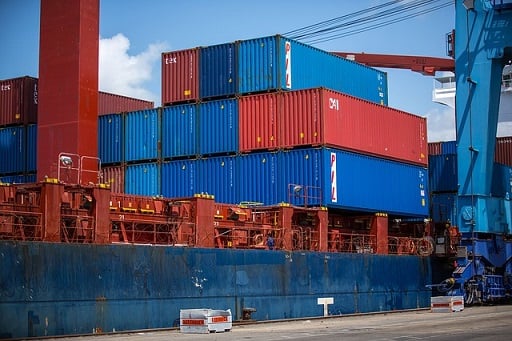In light of two separate events that saw the theft of perishable cargo in the GTA the previous week, the
Insurance Bureau of Canada (IBC) is stepping in to address the issue.
Peel Police reported that, $50,000 worth of milk was stolen from the back of a large transport truck in Mississauga Feb. 8. Hamilton Police days earlier had asked for the public’s help in finding $100,000 worth of blueberries and other fruit; suspects had managed to commandeer a commercial truck that was eventually driven into Toronto.
Learn more about food cargo insurance here.
IBC noted that in 2016, it had received reports totalling $42.3 million worth of stolen property. Many of the thefts reported were described as “low-risk, high-reward crimes.” The issue is such that the IBC considers it a major problem for the country, as Canadian economy loses as much as $5 billion each year to cargo thefts.
The IBC said that with food thefts, no one has ever determined where the stolen merchandise end up.
“It might land on the shelf of a wholesaler two days before its expiry date, and may be starting to turn,” IBC director of Auto Theft Dan Beacock.
Beacock explained that the stolen goods could end up on stores thanks to black market dealings.
“Usually that’s probably going to be word of mouth, underground network, somebody knows somebody who knows somebody,” he detailed. “They might get sold through the black market to variety stores and convenience stores.”
Want the latest insurance industry news first? Sign up for our completely free newsletter service now.
The bureau had launched a national reporting program back in 2014 to address these thefts. Over the years, the IBC has observed a constant climb in these types of crimes as more reports came in.
For 2015, there were 836 reported cases of cargo thefts in Canada. That number more than doubled in 2016, at 1,670 reports. Most of the reports were in Ontario.
The value of stolen goods recovered from theft had increased from $2.7 million in 2014 to more than $25 million in 2016.
“The more we get in the data base, the better the items will be found,” Beacock commented.
Beacock noted that the data is not completely reflective of all cargo thefts, saying that the police on occasion inaccurately investigate the reports as vehicle thefts instead of cargo thefts. He also mentioned that trucking companies also do not always report stolen cargo incidents, since they either do not know how to use the reporting system or are worried that the thefts could affect their insurance, when it really does not.
“The trucking industry is starting to see that there’s value in starting to report,” Beacock confirmed. “We’re helping police to recover and on a number of cases make some arrests.”
The IBC last year helped make 34 arrests and laid 203 charges through the cargo theft reporting system.
Related stories:
Cargo theft reporting expansion in Western Canada bears fruit
New container rules to boost short-term rates on cargo, insurers say


